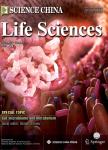Innate and adaptive immune abnormalities underlying autoimmune diseases:the genetic connections
作者机构:Institute for Immunology&School of MedicineTsinghua UniversityBeijing 100084China Department of Rheumatology and ImmunologyShanghai Changzheng HospitalThe Second Military Medical UniversityShanghai 200433China Peking-Tsinghua Center for Life SciencesTsinghua UniversityBeijing100084China Shanghai Immune Therapy InstituteShanghai Jiaotong University School of Medicine-affiliated Renji HospitalShanghai 200127China
出 版 物:《Science China(Life Sciences)》 (中国科学(生命科学英文版))
年 卷 期:2023年第66卷第7期
页 面:1482-1517页
核心收录:
学科分类:0710[理学-生物学] 1002[医学-临床医学] 10[医学]
主 题:autoimmune diseases etiology pathogenesis innate immunity adaptive immunity
摘 要:With the exception of an extremely small number of cases caused by single gene mutations,most autoimmune diseases result from the complex interplay between environmental and genetic factors.In a nutshell,etiology of the common autoimmune disorders is unknown in spite of progress elucidating certain effector cells and molecules responsible for pathologies associated with inflammatory and tissue damage.In recent years,population genetics approaches have greatly enriched our knowledge regarding genetic susceptibility of autoimmunity,providing us with a window of opportunities to comprehensively re-examine autoimmunity-associated genes and possible pathways.In this review,we aim to discuss etiology and pathogenesis of common autoimmune disorders from the perspective of human genetics.An overview of the genetic basis of autoimmunity is followed by3 chapters detailing susceptibility genes involved in innate immunity,adaptive immunity and inflammatory cell death processes respectively.With such attempts,we hope to expand the scope of thinking and bring attention to lesser appreciated molecules and pathways as important contributors of autoimmunity beyond the‘usual suspects’of a limited subset of validated therapeutic targets.



